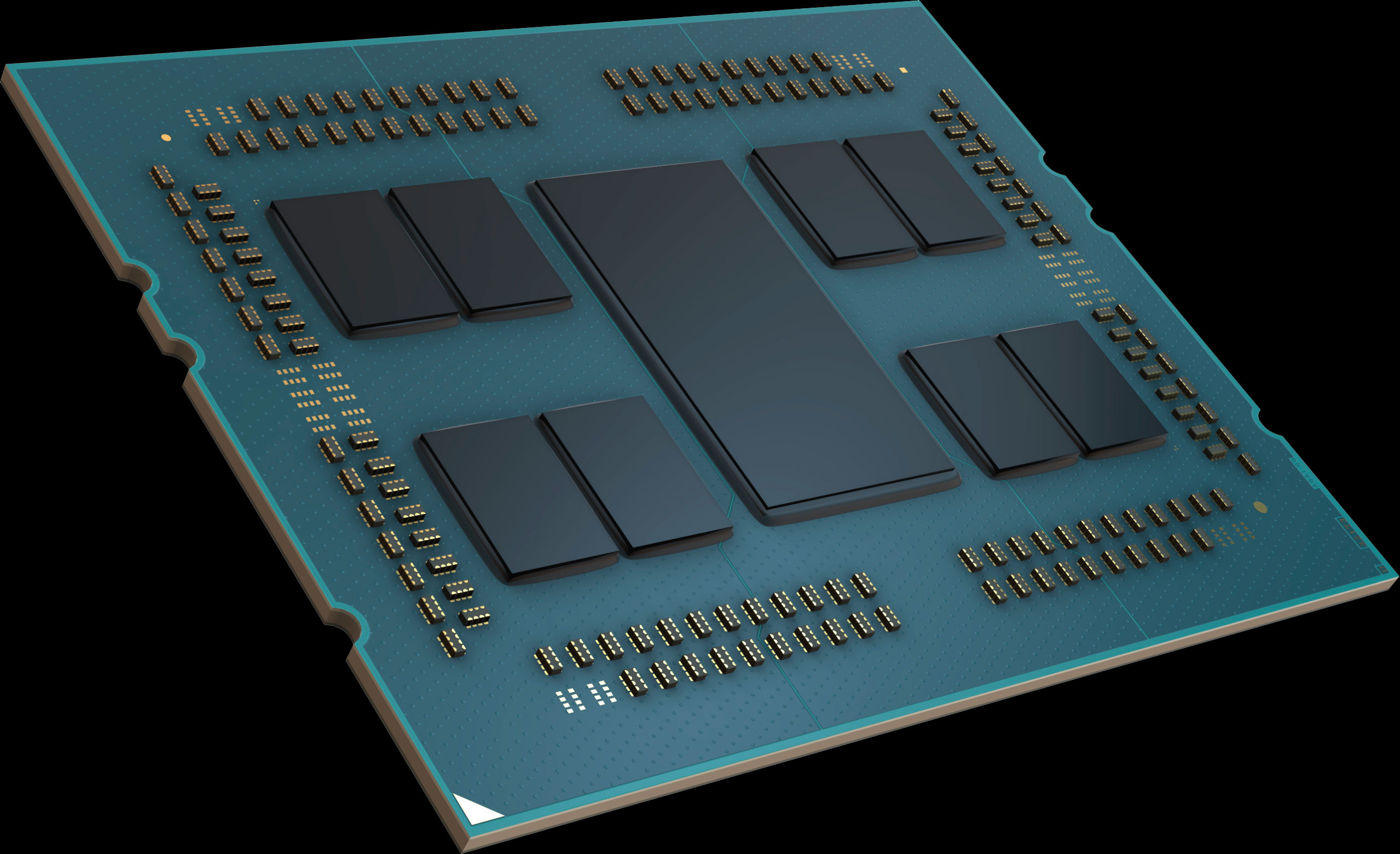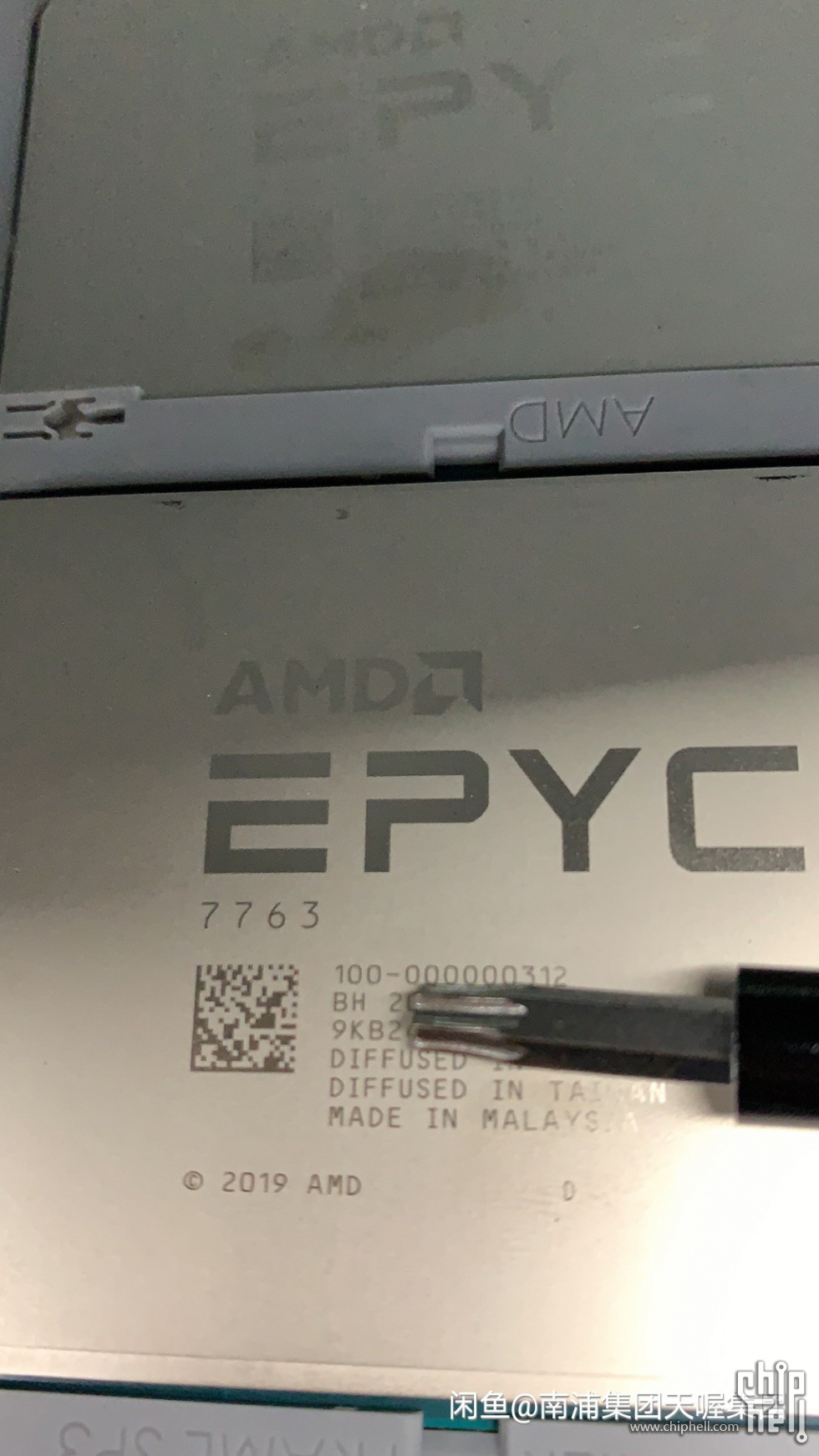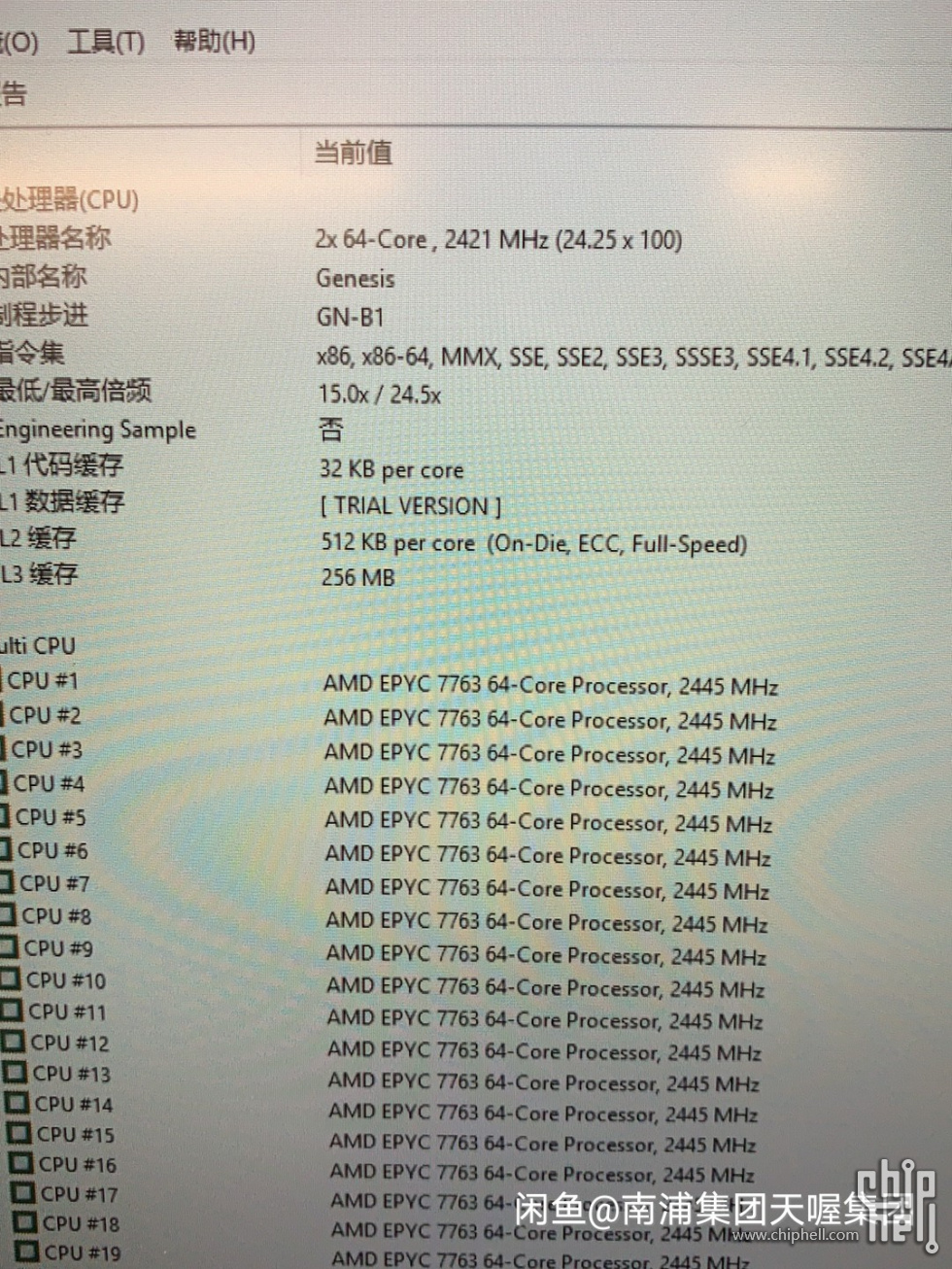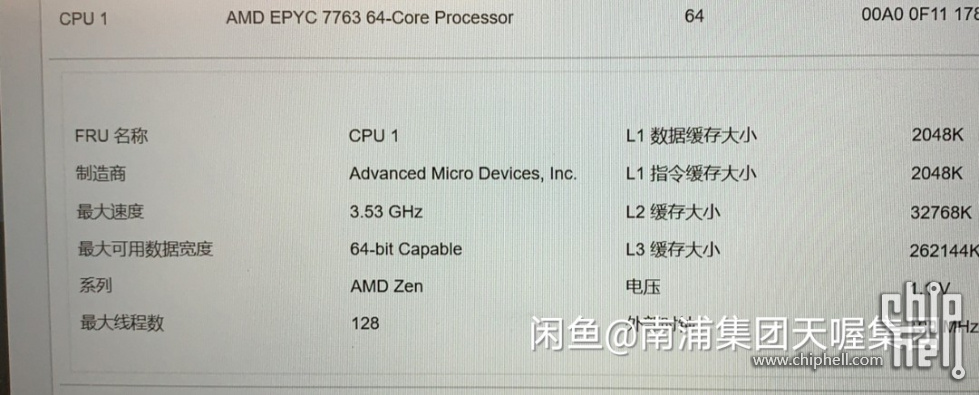
A Chiphell forum user (via momomo_us) has shared what appears to be die shots and specifications for AMD's EPYC 7763 (codename Milan) processor. Milan will likely be another one of AMD's exciting product launches as the core-heavy chips bring all the power of the Zen 3 microarchitecture to the server space.
AMD markets its current EPYC (codename Rome) chips under the 7002-series moniker; therefore, Milan has 7003-series branding. The Milan part from the leak seems to be the EPYC 7763, which reportedly features 64 cores, 128 threads, and a whopping 256MB of L3 cache. It's a familiar configuration that AMD uses for its five 64-core Rome chips that it has in its arsenal. In all likelihood, Milan will be based on an improved TSMC 7nm FinFET process to deliver better clock speeds.
Like Rome, Milan will continue to live on the SP3 socket and offer eight DDR4 memory channels and PCIe 4.0 support. Internally, the recipe is still the same. Milan rocks up to eight compute dies linked to a single I/O die. AMD made significant progress in improved instruction per cycle (IPC) throughput on Zen 3, and it will be interesting to see how it fares on EPYC.
AMD EPYC 7763 Specifications
| Processor | Cores / Threads | Base / Boost Clocks (GHz) | L3 Cache (MB) | TDP (W) |
|---|---|---|---|---|
| EPYC 7763* | 64 / 128 | 2.45 / 3.53 | 256 | ? |
| EPYC 7H12 | 64 / 128 | 2.60 / 3.30 | 256 | 280 |
| EPYC 7742 | 64 / 128 | 2.25 / 3.40 | 256 | 225 |
| EPYC 7702 | 64 / 128 | 2.00 / 3.35 | 256 | 200 |
| EPYC 7702P | 64 / 128 | 2.00 / 3.35 | 256 | 200 |
| EPYC 7662 | 64 / 128 | 2.00 / 3.30 | 256 | 225 |
*Specifications are unconfirmed.
The EPYC 7763 apparently sports the 100-000000312 OPN (ordering part number) code and doesn't match any of the previous rumored 64-core Milan processors. This can be an engineering sample so the clock speeds should be taken with a pinch of salt. The final specifications may vary.
For the moment at least, the EPYC 7763 sample shows a 2.45 GHz base clock and 3.53 GHz boost clock. Current 64-core EPYC Rome chips have base clock speeds spanning from 2 GHz to 2.6 GHz and boost clock speeds from 3.3 GHz to 3.4 GHz. Milan's values might not look impressive, but Zen 3 has demostrated to us IPC gains up to 19% on the mainstream Ryzen 5000 processors. We expect the same level of improvement to translate over to the EPYC side.



It's pretty much anyone's guess which EPYC 7002-series chip the EPYC 7763 will replace. However, given its product name, it's possible that the EPYC 7763 could be the direct successor for the EPYC 7662. If that's the case, we're looking at 22.5% and 7% upgrade on the base and boost clocks, respectively. The leaker didn't reveal the EPYC 7763's TDP (thermal design power), though, so we can't corroborate our theory.
Stay On the Cutting Edge: Get the Tom's Hardware Newsletter
Get Tom's Hardware's best news and in-depth reviews, straight to your inbox.
AMD's last roadmap showed that Milan would go into production Q3 of this year with a promise that the Zen 3-powered server chips would hit the market by the end of 2020. It's no surprise that samples are already running around in the wild.

Zhiye Liu is a news editor and memory reviewer at Tom’s Hardware. Although he loves everything that’s hardware, he has a soft spot for CPUs, GPUs, and RAM.